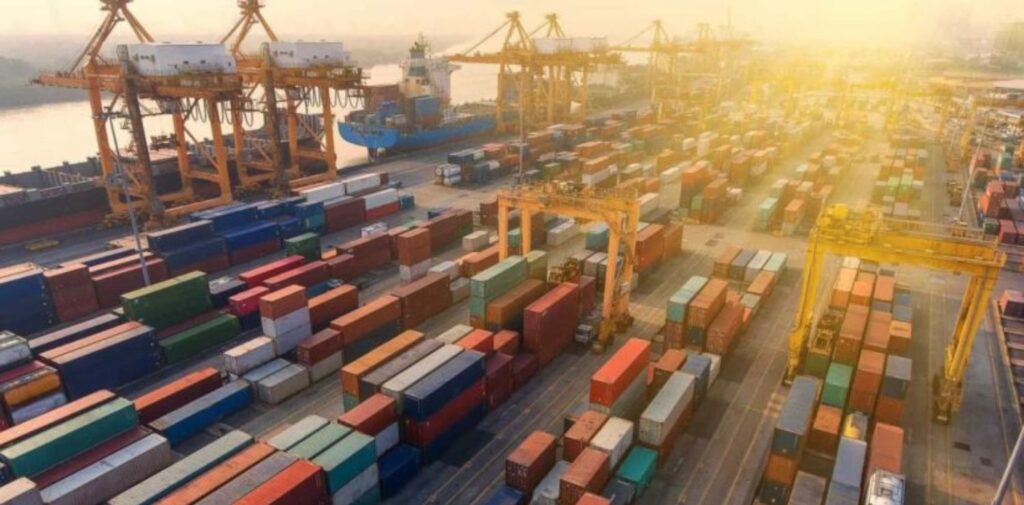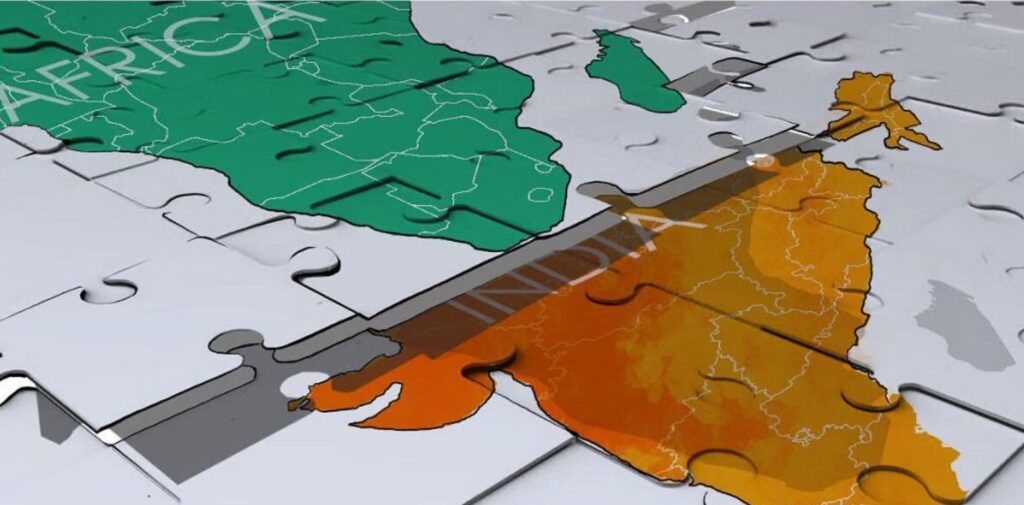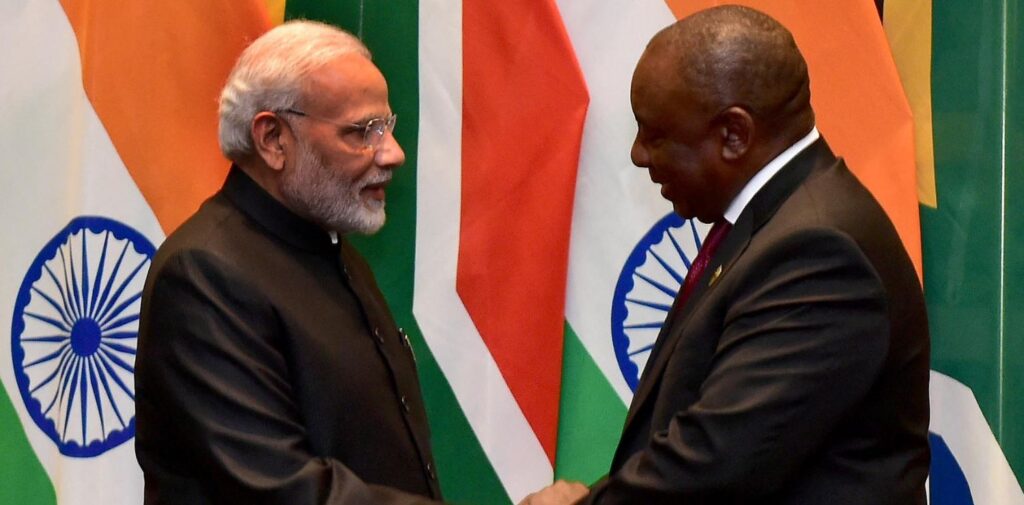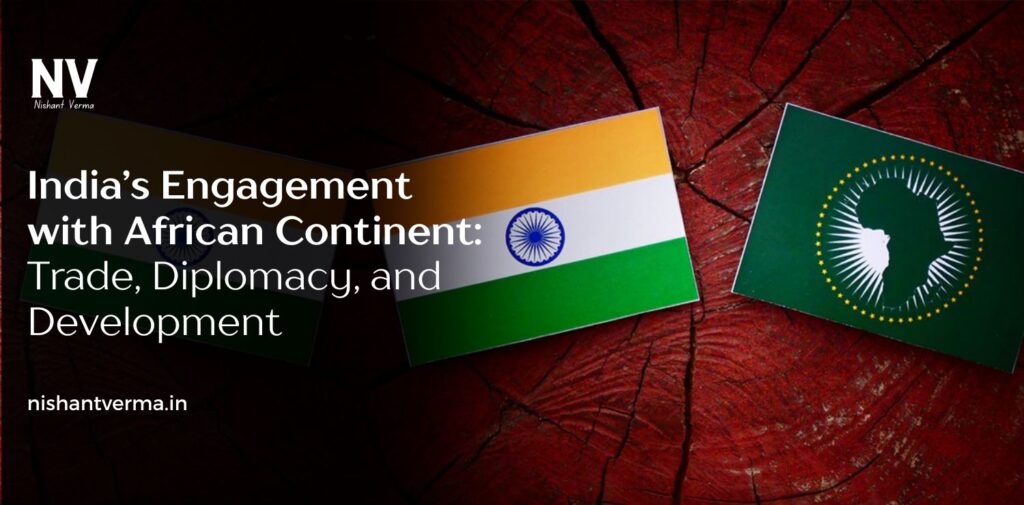India’s relationship with the African continent has grown substantially over the last few decades, driven by mutual interests in trade, development, and diplomacy. Africa, with its vast natural resources, growing economy, and youthful population, holds immense potential for cooperation. India, on the other hand, with its rapidly expanding economy, growing technological prowess, and vast market, provides a valuable partner for Africa. This article explores the various dimensions of India Engagement with African Continent, focusing on trade, diplomacy, and development cooperation.
A Historical Connection: Shared Ties of Culture and History
India and Africa share deep historical ties that go beyond mere trade and diplomacy. The roots of the relationship date back centuries, with ancient trade routes connecting the Indian subcontinent to the African continent. India’s maritime trade with Africa flourished during the 2nd century BC, and these interactions were further strengthened by the spread of Indian culture, religion, and ideas. India’s shared experiences with African nations in terms of colonialism and the subsequent struggles for independence also form a bond that still resonates today.
The bonds of solidarity during the struggle for independence and the support for anti-colonial movements created a foundation of mutual trust between India and Africa. India was a strong advocate for African nations during the period of decolonization, and this shared history of struggle and triumph continues to influence the relationship today.

Trade and Economic Relations: Growing Opportunities
Over the past few decades, India has emerged as one of Africa’s major trading partners. The trade between India and Africa has grown exponentially, reaching over $60 billion annually. This growth has been driven by India’s expanding demand for Africa’s natural resources, as well as Africa’s increasing need for Indian goods and services.
Africa’s rich natural resources, including oil, minerals, and agricultural products, are crucial to India’s energy and raw material needs. India imports a significant portion of its oil and natural gas from Africa, with countries like Nigeria, Angola, and Libya playing key roles in these imports. In return, India exports machinery, chemicals, pharmaceuticals, and automobiles to Africa, with Indian businesses expanding their presence in several African countries.
Moreover, Indian companies have increasingly invested in Africa’s infrastructure and manufacturing sectors. Indian businesses have established a strong footprint in African industries such as telecommunications, banking, and information technology. India’s success in information technology has contributed to the continent’s growing digital economy, and Indian firms are playing a significant role in developing Africa’s ICT infrastructure.
Diplomatic Ties: Strengthening Political and Strategic Partnerships
India’s diplomatic engagement with Africa has grown stronger in recent years, with India focusing on building strategic partnerships with African nations. India’s approach to diplomacy in Africa is based on the principles of mutual respect, cooperation, and support for Africa’s developmental goals. India’s foreign policy towards Africa is characterized by a commitment to strengthening political ties, enhancing cooperation in multilateral organizations, and fostering peace and stability on the continent.
India’s participation in African Union (AU) initiatives and its support for the continental integration of Africa have been significant aspects of its diplomatic engagement. India has consistently advocated for Africa’s greater representation on the global stage, including in institutions such as the United Nations Security Council. India’s diplomatic engagement is not limited to just political ties; it also focuses on expanding cultural exchanges, educational cooperation, and people-to-people connections.
India also takes a leading role in peacekeeping operations in Africa. Indian peacekeeping forces have been deployed in several African countries, including Liberia, Sudan, and Congo, to help maintain peace and stability. These peacekeeping missions reflect India’s commitment to Africa’s security and its belief in promoting stability in the region.

Development Cooperation: India’s Role in Africa’s Growth
India’s role in Africa’s development is marked by its emphasis on providing affordable and sustainable solutions to the continent’s challenges. India’s development cooperation with Africa is driven by the desire to support the continent’s efforts in areas like infrastructure development, health, education, and technology. India’s approach to development in Africa is based on sharing its own experience in overcoming challenges related to poverty, education, and healthcare.
One of the key components of India’s development cooperation is its commitment to building infrastructure in Africa. India has helped African nations build roads, railways, ports, and power plants, contributing to the continent’s economic growth. Indian companies are involved in several major infrastructure projects across Africa, and India’s technical expertise and cost-effective solutions have been well received.
India’s collaboration in the healthcare sector is another area of focus. India has been providing affordable medicines and healthcare services to Africa, and Indian pharmaceutical companies are among the largest suppliers of generic medicines to the continent. The establishment of medical centers, training of healthcare professionals, and support for public health programs are also part of India’s developmental support for Africa.
Education and skill development are central to India’s efforts in Africa. India has set up several educational programs and scholarships for African students, allowing them to pursue higher education in Indian institutions. The Indian government’s flagship scholarship programs, such as the Indian Technical and Economic Cooperation (ITEC) program, have been instrumental in promoting education and capacity-building in African countries. Additionally, India has been actively involved in vocational training programs to help African youth acquire the skills needed for the job market.

Challenges and the Road Ahead: Addressing Common Issues
Despite the growing relationship between India and Africa, there are several challenges that need to be addressed for the partnership to reach its full potential. One of the main challenges is the lack of infrastructure and logistical connectivity between India and Africa. The vast distances between the two regions and the absence of direct transportation links often complicate trade and investment activities. To overcome this, India has been advocating for better connectivity through improved air, sea, and land transport links.
Another challenge is the need for greater diversification of trade. While India’s trade with Africa has grown, it is still heavily focused on natural resources. There is a need to expand the trade relationship to include more value-added products and services. This can be achieved by encouraging joint ventures and collaborations in sectors such as agriculture, manufacturing, and technology.
Africa also faces several socio-political challenges, such as instability, conflict, and poor governance in some regions. These challenges often hinder the flow of investment and development. India has been working closely with African governments and international organizations to address these issues through diplomatic channels and peacekeeping efforts.
Conclusion: India Engagement with African Continent
India’s engagement with Africa has reached new heights, and the future looks promising for deeper cooperation in trade, diplomacy, and development. Both regions have much to offer each other, and as India’s economy grows, its role in supporting Africa’s growth will continue to expand. The growing economic ties, strengthened political relationships, and shared commitment to sustainable development create a solid foundation for future collaboration.
India’s continued investment in Africa’s infrastructure, healthcare, education, and technology sectors will contribute to the continent’s long-term development goals. Similarly, Africa’s vast natural resources and emerging markets offer India ample opportunities to diversify its trade and investment portfolio.
The relationship between India and Africa is evolving into a strategic partnership that is not only beneficial for both regions but also holds immense potential to create a positive impact on the global stage. As both regions continue to grow and develop, their partnership will become a key pillar of South-South cooperation, promoting peace, stability, and prosperity for future generations.




